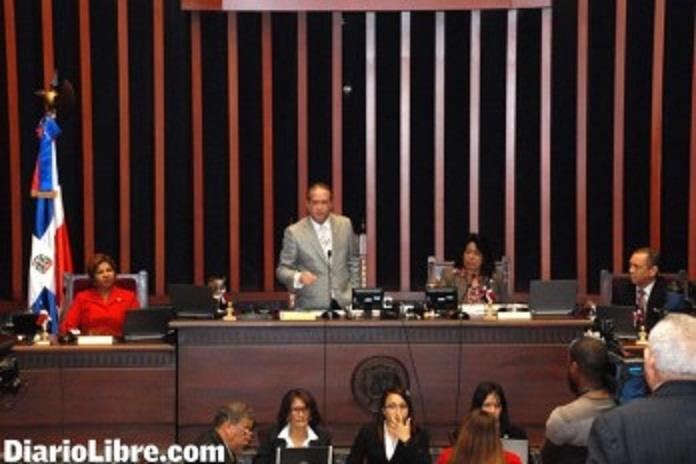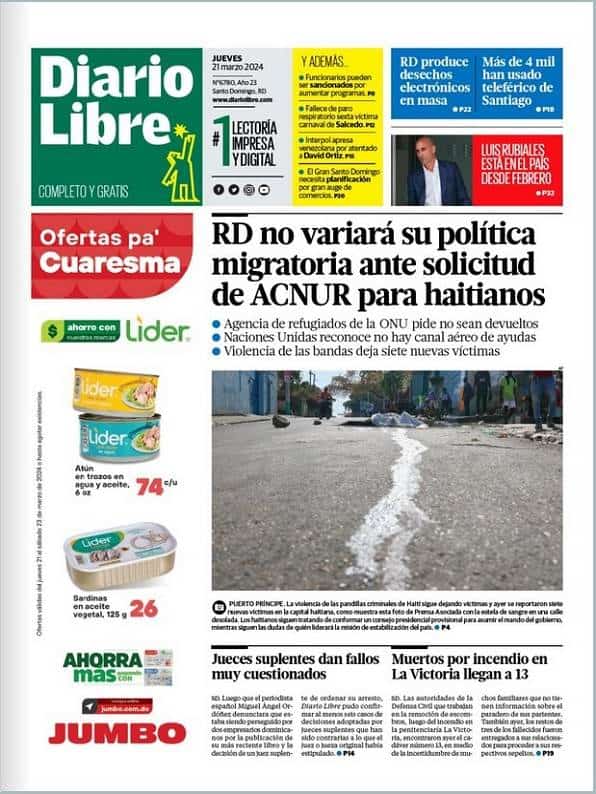Senate rejects modifications by deputies to Salary Law
The legislation, which returns to lower chamber, will expire if changes are made

SANTO DOMINGO. The Senate rejected, after one reading, the modifications that were made by the Chamber of Deputies to the legislative proposal for a Law of Salary Regulation of the Dominican State, eliminating the paragraph that was added to article 26 that removes the Congress from the prohibition of benefits for doing their job.
The legislation was passed, unanimously by the 26 senators that were present in the session and as it was originally written. "Prohibition of benefits for management. The concession of benefits and incentives is prohibited to all officials or public employees subject to the coverage of this law, for results of administration efforts that are within the area of his or her competence."
This means that the legislators cannot receive per diems or expenses for attending the sessions of the upper or lower chambers or the meetings of the different commissions.
There was also a modification of the eighth provisional disposition which establishes "The dispositions of this law with respect to the Central Bank of the Dominican Republic will enter into effect immediately, with the exception of the salary scale, which will be revised after the second year of this law going into effect."
This means that the officials of the Central Bank cannot have credit cards and that their expense accounts, fuel allowances, telephones and all of the measures of the law except that of the salaries will be applied.
With these changes, the proposal will be returned to the Chamber of Deputies so that they can vote on it again.
The debates
Senators Felix Nova, Charlie Mariotti, Tommy Galan, Julio Cesar Valentin questioned the decision by the deputies.
Mariotti said that before the doors of a tax reform in which they are going to demand sacrifices from the people, the legislators should be unselfish.
Nova said that they would give a bad example if they did not eliminate the changes.
The president of the Senate, Reinaldo Pared Perez, accused government officials of paying reporters and of publishing advertisements with government money.
The legislative initiative will only expire if the Chamber of Deputies rejects what was sent from the Senate, since it was already re-introduced after expiring last 26 July.
Article 99 of the Constitution says that "If a legislative proposal is approved in one of the chambers, it will go to the other for its proper discussion, observing the same constitutional formalities. If this chamber makes changes, it will return said proposal with modifications to the chamber where it started, so that it can be heard again in one session and, in case the modifications are accepted, the latter chamber will send the law to the Executive Branch.
If they are rejected, the proposal will be returned to the other chamber and if this one approves it, it will be sent to the Executive Branch. If the modifications are rejected, the legislation will be considered to have expired."
Limit of the use of credit cards and places a ceiling of RD$450,000 on salaries
The law limits the use of credit cards paid for by the State to the President and Vice President, the presidents of the legislative chambers, the Chief Justice of the Supreme Court of Justice and the heads of entities and agencies covered in the Constitution.
It will establish a salary ceiling for the President of the Republic of RD$450,000; for the head of the Senate, the Chamber of Deputies, the Chief Justice of the Supreme Court and the Constitutional Tribunal, RD$400,000; the Superior Electoral Tribunal RD$375,000; the Chamber of Accounts, RD$350,000, the ministers, the Attorney General of the Republic, the Presidential Legal Council and the Controller General, RD$300,000 and the Public Defender, RD$250,000.
The expense accounts will be limited to a maximum of 15% of the base salary of the official, excepting the President and Vice President of the Republic, the presidents of the legislative chambers, the Chief Justice of the Supreme Court, the presiding judge of the Constitutional Tribunal, the Superior Electoral Tribunal, the Chamber of Accounts and the Central Electoral Board.
The law establishes that the public officials cannot receive any remuneration paid by the State, apart from that of their post, and they cannot carry out any other functions that imply the payment of benefits or remunerations coming from other sources, except teaching, cultural activities, sports or research.
The law also establishes a punishment to the head of the agency that does not budget the corresponding assignments related to the budgetary provisions for the granting of the thirteenth salary, with a fine equivalent to three times the monthly salary, without excluding any other measure that might be taken by the President of the Republic.
The regulations for the Law will be worked out by the Ministry of Public Administration with the first six months of the law going into effect and being presented to the Executive Branch.


 Diario Libre
Diario Libre
 Diario Libre
Diario Libre